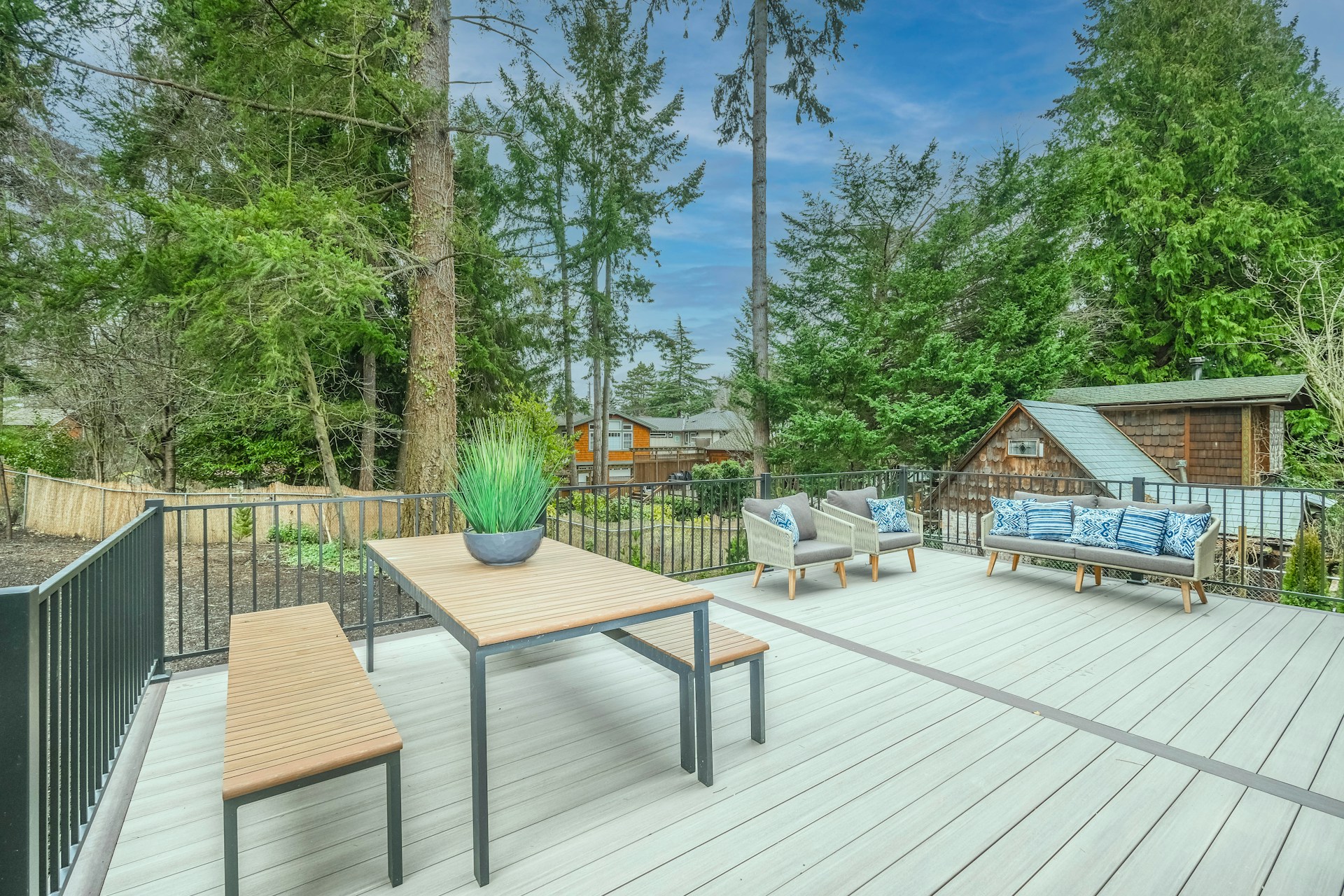Choosing the right material for your deck is crucial for ensuring its longevity, aesthetics, and overall value. Composite decking has become an increasingly popular choice due to its durability and minimal maintenance requirements. However, understanding the costs associated with composite decks can help you make a well-informed decision that aligns with your budget and needs.
Several factors influence the cost of composite decking, ranging from the quality of materials to the complexity of the deck design. It’s essential to consider these elements to avoid any unexpected expenses during your project. Additionally, comparing composite decking to other materials like wood or PVC can provide insights into the long-term benefits and potential savings associated with each option.
In this guide, we will explore the various factors influencing composite deck costs, compare it with other decking materials, offer budgeting tips, and highlight the long-term value of investing in composite decks. Understanding these aspects will equip you with the knowledge to plan your project effectively and ensure you get the best value for your investment.
Factors That Influence Composite Deck Costs
Several factors affect the cost of composite decks. Understanding these elements can help you plan and budget more effectively. One of the primary factors is the size of your deck. Larger decks require more materials and labor, which increases the total cost. The complexity of the design also plays a significant role. Multi-tier decks or those with unique shapes and custom features will be more expensive than simpler, single-level decks.
Another important factor is the quality of the materials used. Composite decking comes in various grades, each with different levels of durability, texture, and color options. Higher-end composites may offer enhanced resistance to scratching and fading, but they come at a higher price. Additionally, the brand and manufacturer of the composite material can impact the cost. Some brands are known for their quality and longevity, which can justify a higher price tag.
Comparing Composite Decking to Other Materials
When choosing decking materials, it’s essential to compare composite decking to other options like wood and PVC. Composite decking is made from a blend of wood fibers and plastic, offering the appearance of wood without high maintenance. It doesn’t require regular staining or sealing, making it a convenient choice for homeowners looking for low maintenance.
Wood decks, especially those made from pressure-treated lumber, are often less expensive upfront but require more maintenance over time. They need to be stained and sealed regularly to prevent rotting and insect damage, which can add to the long-term costs. On the other hand, PVC decks are fully synthetic and offer excellent water and insect resistance. They are generally more expensive than composite decks but can last longer with even less maintenance. Each material has its pros and cons, so it’s crucial to consider your budget, maintenance willingness, and aesthetic preferences when making a decision.
Budgeting Tips for Your Composite Deck Project
Budgeting for a composite deck project can seem daunting, but breaking it down into simple steps makes it more manageable. Start by determining the overall size and scope of your deck. This includes not just the decking material but also railings, steps, and any custom features you might want, like built-in seating or lighting. Creating a detailed plan helps avoid unexpected expenses later.
Next, gather multiple quotes from different contractors to get an idea of labor costs. It’s important to compare these quotes carefully, as some may include additional services like design and planning, while others might charge extra for these. Don’t forget to factor in permit fees, which can vary depending on your location. Planning for these costs upfront helps you stay within your budget and avoid surprises.
Long-Term Value and Savings of Composite Decks
Composite decks offer excellent long-term value and savings, making them a smart investment for any homeowner. One of the biggest benefits is the low maintenance required. Unlike wood decks that need regular staining and sealing, composite decks only need occasional cleaning with soap and water. This can save a lot of time and money over the years.
Additionally, composite decks are built to last. They resist rotting, warping, and insect damage, which can significantly extend their lifespan compared to traditional wood decks. This durability means you won’t have to worry about costly repairs or replacements. Moreover, composite decks often come with warranties that provide extra peace of mind and further enhance their long-term value.
Conclusion
Choosing the right decking material and contractor for your project is key to creating a beautiful, durable, and cost-effective outdoor space. Composite decking offers numerous benefits, from low maintenance to exceptional longevity, making it an excellent choice for many homeowners. By carefully planning your budget and comparing different materials, you can make an informed decision that suits your needs and enhances the value of your home.
At Clear Choice Custom Decks, we specialize in helping you bring your outdoor dreams to life with top-quality composite decking solutions. With our expertise and commitment to customer satisfaction, we ensure your deck project is completed to the highest standards. Contact us today to start your journey toward a stunning and enduring outdoor space.
